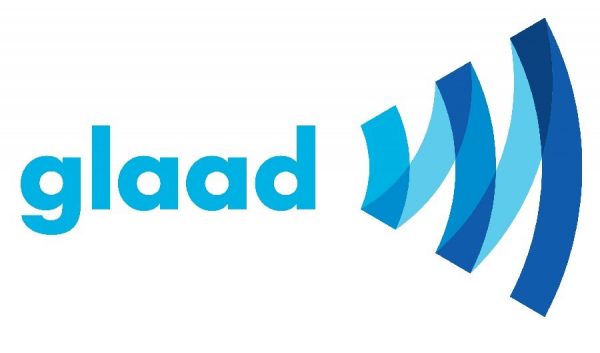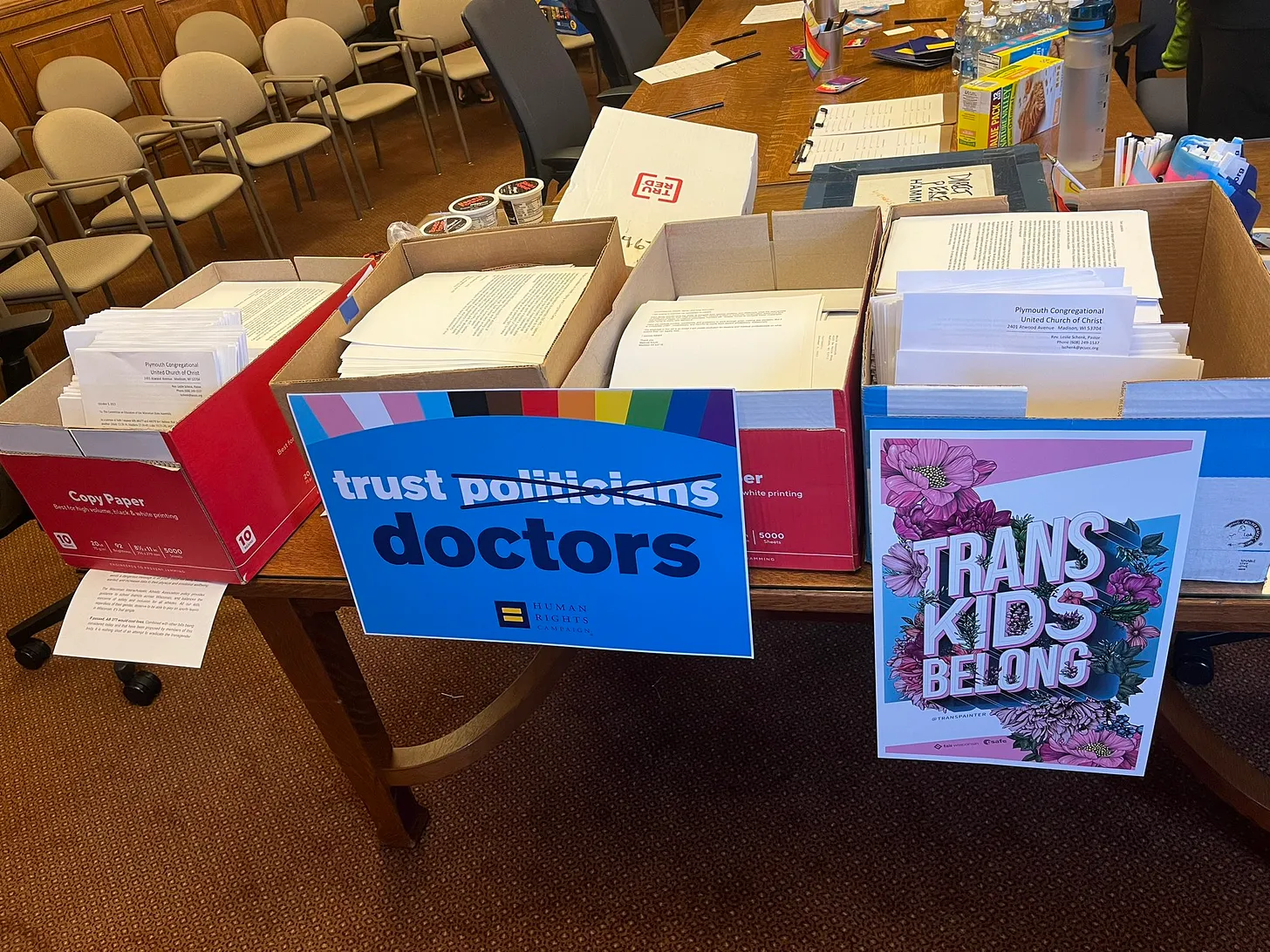Wisconsin
Wisconsin Governor Evers vetoes ban on trans student athletes
The expected veto of AB 377 is Evers’ latest rejection of bills passed by Republicans that targeted LGBTQ+ people

By Baylor Spears | MADISON, Wis. – Democratic Gov. Tony Evers vetoed a Republican bill Tuesday that would have barred transgender girls from participating on girls’ sports teams.
The expected veto of AB 377 is Evers’ latest rejection of bills passed by Republicans that targeted LGBTQ+ people. Evers, who also recently vetoed a bill that would ban gender affirming medical care for minors, had repeatedly said that he wouldn’t sign bills that could negatively impact LGBTQ+ Wisconsinites.
Evers said in his veto message that the bill and “the harmful rhetoric” that produced it “harms LGBTQ Wisconsinites’ and kids’ mental health, emboldens anti-LGBTQ harassment, bullying, and violence, and threatens the safety and dignity of LGBTQ Wisconsinites, especially our LGBTQ kids.”
“I will veto any bill that makes Wisconsin a less safe, less inclusive, and less welcoming place for LGBTQ people and kids, and I will continue to keep my promise of using every power available to me to defend them, protect their rights, and keep them safe,” Evers said.
The bill would have required schools to create three categories of teams — “males,” “females,” and “males and females,” — based on students’ sex assigned at birth. It would have specifically prohibited a “male pupil” from participating on a team designated for “females.”
The bill passed the Assembly with only Republican support. When it passed the Senate, Sen. Joan Ballweg (R-Markesan) was the only Republican to join Democrats against the bill.
Evers said in his message that he was vetoing the bill because it ignored the current policy regarding transgender student athletes set by the Wisconsin Interscholastic Athletic Association, because it could conflict with current federal law and because it “fails to comport with our Wisconsin values.”
“I am vetoing this bill in its entirety because I object to codifying discrimination into state statutes and the Wisconsin State Legislature’s ongoing efforts to perpetuate hateful and discriminatory rhetoric and policies targeting LGBTQ Wisconsinites, including our transgender and gender nonconforming kids,” Evers said.
The Transgender and Non-Binary Advocacy caucus applauded Evers’ veto in a statement.
Caucus co-chair Rep. Melissa Ratcliff (D-Cottage Grove) said the “harmful proposal targeted trans and non-binary students and would have prevented them from participating in sports teams that align with their gender identity.
“It is a sad day when discrimination and prejudice receive the overwhelming support of Republicans in the State Legislature,” she continued.
******************************************************************************************

Baylor Spears is a staff reporter for the Wisconsin Examiner. She’s previously written for the Minnesota Reformer and Washingtonian Magazine. A Tennessee-native, she graduated with a degree in journalism from Northwestern University in June 2022.
The preceding piece was previously published by the Wisconsin Examiner and is republished with permission.
Wisconsin Examiner is part of States Newsroom, the nation’s largest state-focused nonprofit news organization.
In Wisconsin’s great progressive tradition, we aim to hold the powerful accountable to the people, follow the money, and dig out the truth. Although we give you the inside scoop, we are not a publication for “insiders.” Instead, we cover the way politics and government affect citizens of the state.
Wisconsin
Milwaukee LGBT Community Center asking for community’s help
The community center is attempting to raise $25K When it achieves that goal, the Leonard-Litz LGBTQ+ Foundation will match the funding

MILWAUKEE, Wis. — The Milwaukee LGBT Community Center is working to keep its doors and services open for hundreds of people with a funding campaign. The financial outlook currently is dire as the center has a May 31 deadline to raise the required funds so that the Leonard-Litz Foundation will match it.
The community center is attempting to raise $25,000. When it achieves that goal, the Leonard-Litz LGBTQ+ Foundation will match the funding for a total campaign of $50,000.
In an interview with ABC News affiliate WISN 12 News in Milwaukee, Ricardo Galaviz, the center’s associate director said keeping the center’s doors open is not only his goal, but also a full circle moment for him.
“Everyone was telling me, like being gay is going to hinder you,” Galaviz told WISN 12 News journalist Diana Gutierrez. “You’re never going to be successful because of who you are,” he added.
WISN 12 reported that at 16, Galaviz found support at Project U, a youth program at the Milwaukee LGBT Community Center. “At the time, my family was not accepting,” he said.
Years later he’s the associate director of the same center that saved him.
“Not only was I able to find people like me, but I was also able to see people who are like me in positions of success,” Galaviz said. He stressed that currently, the center is in need of some saving, too. “The sustainability of the center is what we’re trying to lock down right now,” he said.
In a Facebook post the center noted: “Free activities like yoga classes, potlucks, teen nights, crafternoons, discussion groups, book clubs, and so many more would not be possible without the generosity of our members and donors.”
According to the website of the Leonard-Litz LBGTQ+ Foundation, its mission is to “fund organizations which advance the interests and well-being of the LGBTQ+ community.” The foundation gives grants to local LGBTQ+ organizations, usually focusing most on the U.S. Northeast.
WISN 12 reported the fundraising plan is meant to bring the organization, located at Dr. M.L.K. Jr. Drive and Court Street, back to its full operating status. The organization’s new Interim Executive Director Ritchie T. Martin Jr. and the board of directors created this plan and partnership.
“We are extremely grateful to the Leonard-Litz Foundation for providing us with a grant to keep our doors open and a further matching grant,” said Martin Jr. “Now we look to our donors and community to help us in this next step of getting the Milwaukee LGBT Community Center to a stronger future.”
“From the people that were utilizing services prior to the pandemic. Compared to now, the numbers have multiplied quite quickly,” Galaviz told WISN 12. “We understand the importance of self-care, of taking care of ourselves, not just health wise, physical health, but also emotional and mental health. So, we’re seeing a lot of those services be the ones that people are looking for.”
He stressed it’s important to keep this center running. And although this might be a tough time, he wants to highlight the positives.
“There’s a lot of things that are happening socially, politically to this community. But there’s also a lot of things to celebrate here in Milwaukee. The great things that the center is doing, the great things that we’re able to provide the community,” Galaviz said. “I want people to know too that this is a thriving community. It’s not just a community that’s, you know, in crisis mode. We are in crisis mode. But as history has taught us, we have to come together. We’re all we have, but we’re also all we need.”
Editor’s note: If you’d like to help Milwaukee LGBT Community Center, donate here: https://secure.everyaction.com/kMZxWag-eU6XMa3ufB7wlA2
Wisconsin
Wisconsin activists: Barriers remain on access for LGBTQ+ people
Many of the LGBTQ advocates said that they struggle with access to LGBTQ community, extracurriculars, medical care
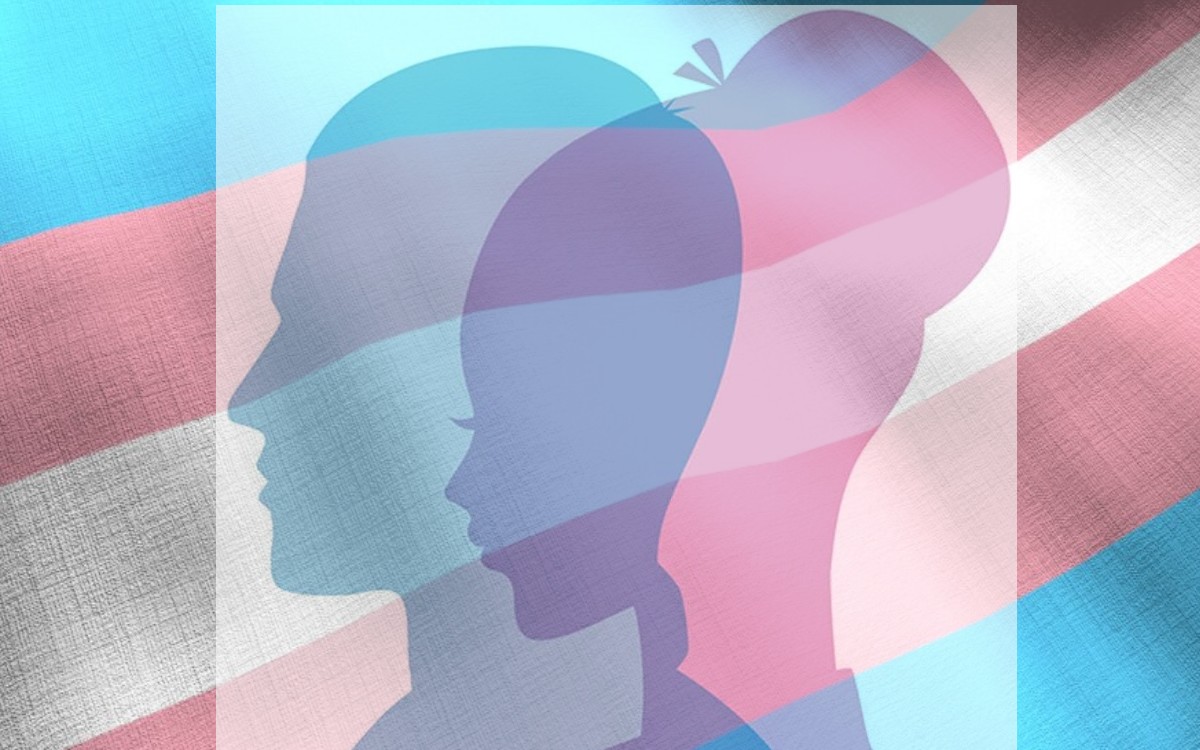
By Lana Leonard | MILWAUKEE, WI – Kat Klawes had no choice but to fight for transgender rights as a teen growing up in Milwaukee, Wisconsin. A young Klawes often fought for the world to believe one of her mothers is a transgender woman.
Klawes grew up knowing one of her mothers was trans, often fighting for the world to know it as well. But for years, she tells GLAAD, she had to pretend her mother didn’t exist, with adults in her life repeatedly telling her that she had fabricated the story of her mother and her mother’s transness.
Fast forward to present day, Klawes is taking back the narrative, owning her story and correcting the record. In January, she joined fellow Wisconisites and local LGBTQ activists at the Milwaukee LGBT Community Center in a gathering with local leaders convened by the GLAAD Media Institute. Like her, many of the LGBTQ advocates said that they struggle with access to LGBTQ community, extracurriculars, medical care, and basic needs in Wisconsin.
Fast forward to present day, Klawes is taking back the narrative, owning her story and correcting the record. In January, she joined fellow Wisconisites and local LGBTQ activists at the Milwaukee LGBT Community Center in a gathering with local leaders convened by the GLAAD Media Institute. Like her, many of the LGBTQ advocates said that they struggle with access to LGBTQ community, extracurriculars, medical care, and basic needs in Wisconsin.

“We didn’t talk about trans people,” Klawes told GLAAD.
“I remember on the playground one day in second grade, I told one of my friends about my other mother. She then ran and told the teacher who came up to me and made me apologize for ‘lying.’”
This broke Klawes’ heart. She had lost access to her family in the ways many LGBTQ youth are today with “Don’t Say Gay or Trans” laws, history, sports, and book bans, and trans healthcare bans. “As a child, I looked to my local libraries for resources,” she shared. “In middle school I read the book Luna by Julie Anne Peters. It was the first time in my life that I didn’t feel alone.” She said the public library book helped her to “better understand her queerness” and her mother.
Last year, there were 3,362 school book bans nationwide, including 43 in Wisconsin, according to the nonprofit PEN America. While Wisconsin is not in legislative session in 2024, the state will have elections.
Voters know Wisconsin for its tight elections. In 2024 there will be elections for State Senate and State Assembly. The general election is on November 5. A primary is August 13, and the filing deadline is June 3.
“Wisconsin is quite rural,” said Alaina Landi, the communications and marketing director of the Milwaukee Gay Football Club. “Milwaukee and Madison, I’d say, are really safe havens for the LGBTQ community and most people with a marginalized identity.”
Landi is fighting to make community gatherings – in particular with a focus on sports. Already, 23 states have anti-trans sports bans, according to the Movement Advancement Project. Meanwhile, Wisconsin’s anti-LGBTQ politicians hope to be the twenty-fourth.

Back in October, the Wisconsin State Assembly passed “new restrictions on who can play sports” for public schools, private schools in the parental choice program, UW System schools and technical colleges.
“We’re going to veto every single one of them (the bills),” said pro-LGBTQ Wisconsin Gov. Tony Evers in a hearing regarding the bills.
Nonetheless, the possibility of anti-LGBTQ laws passing alone has an impact on LGBTQ populations throughout the state.
Erik Czech-Swanson, founder of LGBT Waukesha, said he relates to the isolation Landi and Klawes discussed with GLAAD. The GLAAD Media institute alum drove about 40 minutes to meet with Wisconsin advocates.
Just west of Milwaukee, Waukesha County is quite rural, making it difficult for LGBTQ people to find each other to organize as a community.
“LGBT Waukesha was founded out of a need for more visibility for the LGBTQIA+ community in Waukesha County,” said Czech-Swanson. “Around me, still, we feel very disconnected in the community where I am at.”
With LGBT Waukesha, Czech-Swanson hopes to change that.
“As we head into the new year, be there for each other,” said Czech-Swanson. “There is so much going on specifically targeting LGBTQ youth and it’s been really disheartening for a lot of them to hear the [anti-LGBTQ] messages going around. It’s really important for us to make sure that they understand that they are welcome and that they have a future.”
With that said, Czech-Swanson says to “be a voice for yourself,” and to “check in on everyone; make sure you’ve got your safety in numbers.”
Hear from other Wisconsin LGBTQ advocates Court Hellendrung, founder of CHOSEN, and Kristina Arnold, a transgender spokesperson for FORGE.
***********************************************************************************
The preceding piece was previously published by the GLAAD Media Institute and is republished with permission.
The GLAAD Media Institute: Using the best practices, tools, and techniques we’ve perfected over the past 30 years, the GLAAD Media Institute turns education into armor for today’s culture war—transforming individuals into compelling storytellers, media-savvy navigators, and mighty ambassadors whose voices break through the noise and incite real change.
You can check your voter registration at GLAAD.org/vote.
Wisconsin
Wisconsin LGBTQ+ caucus proposes marriage equality legislation
LGBTQ+ caucus also condemned transgender sports bill that excludes transgender youth from sports and could cause harm
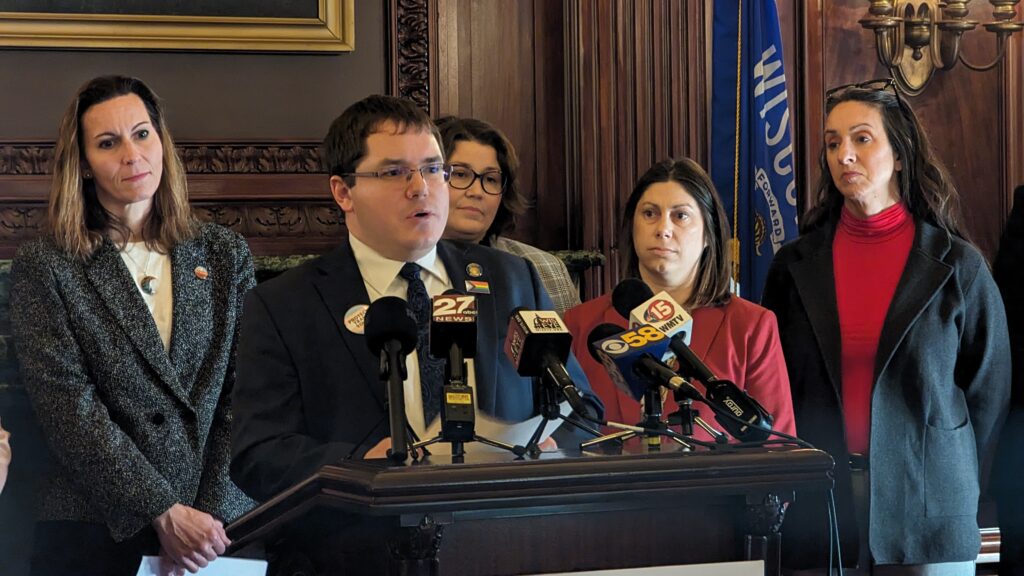
By Baylor Spears | MADISON, Wis. – The Wisconsin LGBTQ+ caucus introduced legislation Tuesday that would update state statutes to reflect a new national marriage equality law and criticized a bill that would restrict transgender women and girls from participating in women’s sports.
The state-level marriage bills were announced on the one-year anniversary of President Joe Biden signing the Respect for Marriage Act — a law granting federal recognition of same-sex marriage that gained bipartisan support in Congress under the leadership of Wisconsin Democratic Sen. Tammy Baldwin. The anti-trans sports bill received a public hearing in front of a Senate committee later the same day.
The first of two marriage-related proposals is a constitutional amendment that would remove language from the Wisconsin Constitution that defines marriage as only between one man and one woman. The language was added into the state constitution in 2006 after 59% of voters voted to approve the amendment.
“2026 would be the 20-year anniversary of this discriminatory language being in our state constitution,” Sen. Mark Spreitzer (D-Beloit) said at a press conference. “If we act now, if we pass this constitutional amendment on first consideration this legislative session, we have the opportunity to let the people of Wisconsin repeal it before we hit that embarrassing 20-year anniversary.”
Constitutional amendment proposals must be passed in two consecutive legislative sessions before going to voters for final approval.
A second proposal would update Wisconsin state statutes related to marriage and parenting to ensure that same-sex and different-sex couples are treated equally under the law. Specifically, the bill would change references to “husband and wife” in state statute to be “spouse” or “spouses” so that it includes both same-sex and different-sex married couples.
The bill would make that change to statutes on issues including recreational licenses and income tax, insurance coverage, retirement or death benefits, medical assistance and parentage and family law.
The bill would also recognize legal parentage for same-sex married couples. It would clarify the right of married couples to jointly adopt children, for one spouse to adopt the other spouse’s child and to jointly have a child through artificial insemination of one of the spouses. It would also clarify the presumption that two people who have a child within their marriage are the parents of that child.
Jaime Gaffke said during the press conference that the legislation is important to ensure that her family is protected. She said her marriage to her wife, Ruth Vater, became officially recognized in the state of Wisconsin following the U.S. Supreme Court’s decision in Obergefell v. Hodges, but following the ruling there was still the need to ensure that Vater had legal parental rights for their children.
Gaffke said Vater is now the legal parent of both of their children, but “due to gender, and language in the state statutes, we continue to protect ourselves legally with parentage orders, and the need to go to court to secure parental rights for Ruth for both of our children.”
“We want to ensure that nothing could get in the way of the strength of our family and the safety of our family,” Gaffke said. “We are so proud to be here to help guide Wisconsin in ungendering their state statutes, removing marriage inequality from the state constitution once and for all, so that our family can be safe, our children can know that if something were to happen to one of us, they would be safe and secure in their family and protected under state law and under the state constitution.”
When asked about Republican support for the proposals, Spreitzer noted that Reps. Todd Novak (R-Dodgeville) and Joel Kitchens (R-Sturgeon Bay) signed on as cosponsors of the bill in 2019.
“We have had some Republican support for implementing marriage equality in the past, obviously it has not become law in past sessions, but we will continue to work with our Republican colleagues,” Spreitzer said. “We know that this is becoming an issue that can be bipartisan.”
He pointed out that the federal Respect For Marriage Act was passed by a bipartisan group of lawmakers and signed into law by President Joe Biden a year ago.
During the press conference on the bills, Democratic lawmakers also called attention to a pair of bills that target young transgender people that were heard by the Senate Mental Health, Substance Abuse Prevention, Children and Families Committee Tuesday.
“What should be a happy day in introducing these marriage equality bills, instead it’s a day where our transgender community has to come push back on the hateful rhetoric that Republicans have put forward, once again, to try to deny our transgender community their rights,” Rep. Melissa Ratcliff said.
The bills — SB 377/AB 378 and SB 378/AB 377 — would bar transgender girls and women from participating in women’s sports. The bills passed the Assembly in October in a party line vote.
Specifically, the bills would bar transgender girls and women from participating in women’s sports in public and voucher schools and in University of Wisconsin campuses and require schools to designate their teams into one of three categories: “males,” “females,” and “males and females.” The bill would also define “sex” as the sex determined at birth by a physician and reflected on the birth certificate.
The bills are part of a slate of measures that Republicans have introduced this legislative session that target LGBTQ people. One bill that would have banned gender affirming medical care for transgender minors was recently vetoed by Gov. Tony Evers.
As Republicans have introduced and advocated for the bills, Evers has repeatedly said that he would veto any bill that “makes Wisconsin a less safe, less inclusive, and less welcoming place for LGBTQ people and kids.”
“Republicans know all too well that these bills will be vetoed but continue to push their culture wars targeting Wisconsin’s transgender youth,” Ratcliff said. “They’re trying to score political points by marginalizing our vulnerable youth.”
The bill authors — Rep. Barbara Dittrich (R-Oconomowoc) and Sen. Dan Knodl (R-Germantown) — argued that the bills are necessary to ensure that there is fairness in women’s sports. Opponents of the bills say they exclude transgender youth from sports and could cause harm.
Tessa Jade Price, who is a transgender woman and works with Trans Advocacy Madison, said that there are already some instances where co-ed teams have been created but that doesn’t make the legislation inclusive.
“Look at the participation rates of those coed options. Are they competing in anything substantial? Do they even have enough people to make a team? Most of them don’t,” Price said. “It’s a way to make a separate but equal situation where you’re able to say this is the trans people and there’s like three of them and hopefully they can form a basketball team or something and that’s not the same thing as inclusion and that is discriminatory.”
Wendy Strout, a representative for the Human Rights Campaign, said that transgender students, like all students, benefit from participating in sports.
“Allowing them to participate in athletic activities consistent with their gender identity in no way disadvantages their fellow students,” Strout said. “Further attempting to separate transgender youth from their peers is impractical, unfair and unnecessary.”
Strout also said that the legislation could be discriminatory and unconstitutional. An injunction against an Idaho law, similar to the Wisconsin bills, was recently upheld by a federal appeals court.
******************************************************************************************
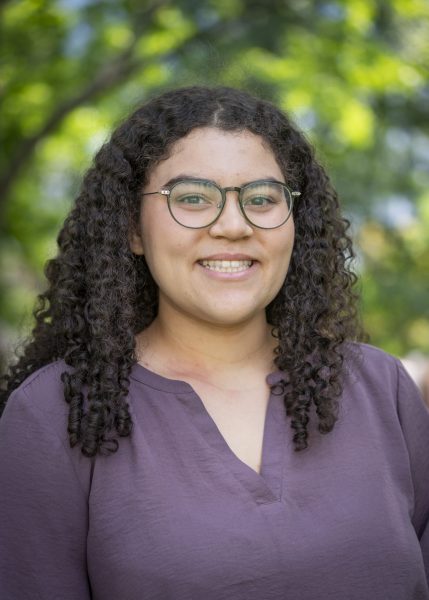
Baylor Spears is a staff reporter for the Wisconsin Examiner. She’s previously written for the Minnesota Reformer and Washingtonian Magazine. A Tennessee-native, she graduated with a degree in journalism from Northwestern University in June 2022.
The preceding article was previously published by the Wisconsin Examiner and is republished with permission.
DIGGING UP THE TRUTH IN THE BADGER STATE
In Wisconsin’s great progressive tradition, we aim to hold the powerful accountable to the people, follow the money, and dig out the truth. Although we give you the inside scoop, we are not a publication for “insiders.” Instead, we cover the way politics and government affect citizens of the state.
Wisconsin
Wisconsin Gov. Tony Evers vetoes trans youth healthcare ban
Transgender youth will continue to have access to gender-affirming medical care, provided the veto survives an override early next year
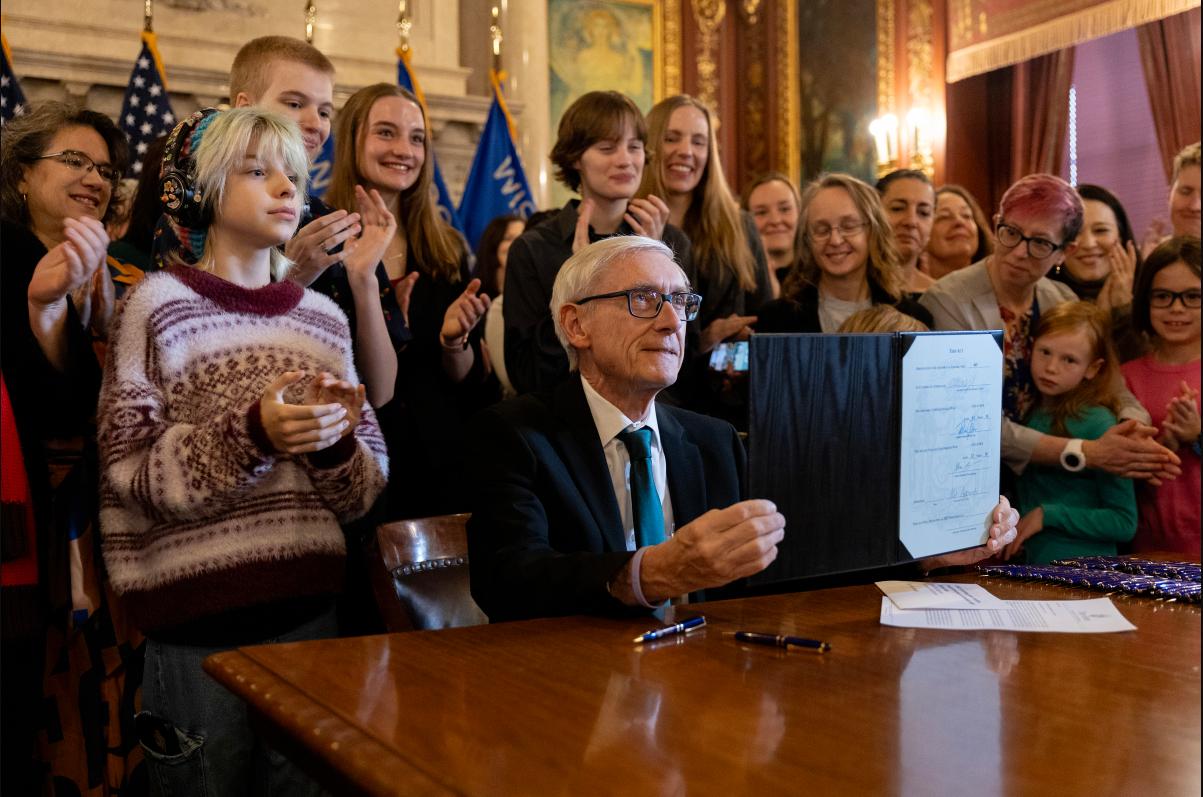
By Phoebe Petrovic / Wisconsin Watch | MADISON, Wi. – Transgender youth will continue to have access to gender-affirming care in Wisconsin after Democratic Gov. Tony Evers, as promised, vetoed a Republican bill that would have banned medical transition for those under 18.
“This was obviously a bill that was begging for a veto … (and) messing with people’s lives,” he said at a closed ceremony on Wednesday morning, surrounded by 80 opponents of the bill including trans youth, health care providers and LGBTQ+ advocates — the “biggest veto” crowd he said he’d ever seen.
Afterward, Evers handed his veto pen to a young trans person with a hat crocheted in the blue, pink and white of the trans flag.
“This type of legislation, and the rhetoric beget by pursuing it, harms LGBTQ people and kids’ mental health, emboldens anti-LGBTQ hate and violence and threatens the safety and dignity of LGBTQ Wisconsinites,” read his veto message.
Evers joins five other governors in the nation who have rejected bills banning gender-affirming care for trans youth. Legislatures overrode those vetoes in all but one, Kansas. Wisconsin Republicans, just two Assembly members short of a supermajority, could override the veto later this session if even three Assembly Democrats are absent.
In an exclusive interview, Evers told Wisconsin Watch while he was confident the veto would survive, “we’re not gonna take anything for granted.” He said the bill shows the “real high” stakes of elections, made more so by gerrymandered political maps that have given Republicans an outsized advantage in the Legislature. The maps are being challenged before a newly liberal-controlled Wisconsin Supreme Court.
“At the end of the day we’ll be in a better position there,” Evers said. “In the meantime, we’ll keep fighting.”

Gender-affirming care is best-practice, doctor-prescribed treatment endorsed by every major medical association in the United States. Peer-reviewed research has shown that social transition and medical care, such as puberty blockers and hormones targeted by the bill, improve the lives of those with gender dysphoria.
About 0.5% of adults and 1.4% of youth ages 13 to 17 in the United States are transgender, according to The Williams Institute at UCLA School of Law, a leading researcher for LGBTQ+ people.
In Wisconsin transgender care for children is prescribed with the involvement of medical professionals and parents. It does not involve the use of medication until puberty and does not involve surgery in most cases until adulthood.
Yet 22 states have outlawed medical or surgical transition care for transgender youth, with 19 states passing bills this year alone during a historic and unprecedented period of anti-transgender policymaking. Some take effect next year; others have been temporarily or permanently blocked by courts.
A coordinated conservative and Christian nationalist movement has fueled the deluge. Wisconsin’s ban, introduced by Rep. Scott Allen, R-Waukesha, mirrored model legislation from the right-wing Family Policy Alliance, which strives to conform all levels of government to a “biblical worldview.”
Wisconsin Watch documented the importance of gender-affirming care for transgender youth in October, finding bans loom large for trans youth and their families.
“Rarely an appointment goes by where a family doesn’t ask about this: ‘If we started this care, will we be able to continue it?’ ” a UW Health doctor previously told Wisconsin Watch. The doctor’s name is being withheld because a colleague suffered sustained harassment and death threats after publicly discussing gender-affirming care. “I have seen firsthand that it has really impacted mental health.”
Evers sided with doctors in his veto message.
“I object to restricting physicians from providing evidence-based and medically appropriate care to their patients, restricting parents from making decisions with physicians to ensure their kids receive the health care they need and preventing patients from receiving that basic, lifesaving care,” Evers said.

A shared disinformation playbook has eased the passage of these bans across the country. In Wisconsin misinformation swirled around the bill, from an hours-long public hearing to debate on the Assembly floor.
For now, transgender youth will be able to access the care they need at the state’s two clinics, where social support is provided in early childhood and puberty blockers and hormones may be prescribed in adolescence.
“Especially important to me personally,” Evers added, “I am vetoing this bill in its entirety because I object to the Legislature’s ongoing efforts to manufacture and perpetuate false, hateful and discriminatory anti-LGBTQ policies and rhetoric in our state.”
The nonprofit Wisconsin Watch (www.WisconsinWatch.org) collaborates with WPR, PBS Wisconsin, other news media and the University of Wisconsin-Madison School of Journalism and Mass Communication. All works created, published, posted or disseminated by Wisconsin Watch do not necessarily reflect the views or opinions of UW-Madison or any of its affiliates.
****************************************************************************************

Phoebe Petrovic is an investigative reporter covering disinformation at Wisconsin Watch and a 2022-2023 Law & Justice Journalism Project fellow. As a Report for America corps member from 2019-2022, Petrovic reported, produced, and hosted “Open and Shut,” a podcast series co-published with Wisconsin Public Radio examining the power of prosecutors.
Petrovic previously worked at WPR as a Lee Ester News Fellow, “Reveal” from the Center for Investigative Reporting as an editorial intern and NPR’s “Here & Now” as a temporary producer. Her work has aired nationally on all of NPR’s flagship news magazines. She holds a bachelor’s degree in American Studies from Yale University.
****************************************************************************************
The previous article was previously published by the Wisconsin Watch and is republished with permission.
Wisconsin Watch is a project of the Wisconsin Center for Investigative Journalism (WCIJ Inc.) — a 501(c)(3) nonprofit organization.
Wisconsin Watch is in the middle of its most important fundraiser of the year: NewsMatch. This year our goal is to raise $100,000. Meeting this ambitious goal will fuel our statehouse and political coverage in 2024.
Thank you for reading this article and building a more informed Wisconsin. Can we count on your support during this season of giving?
When you give today, your gift will be matched, doubling your impact on our nonprofit newsroom and the state of Wisconsin.
Link: Give + Get Matched
Wisconsin
Wisconsin Rep Neubauer: Anti-Trans bills “Will Not Become Law”
Thursday, the Wisconsin Assembly voted to pass a gender affirming care ban for trans youth but doesn’t have votes required to override a veto

By Erin Reed | MADISON, WI. – On Thursday, the Wisconsin Assembly passed three bills aimed at transgender individuals in the state. Two of these bills seek to ban transgender athletes from competing in sports in K-12 schools and colleges, and the third aims to ban gender-affirming care for transgender youth.
The debate on the assembly floor was intense; Republicans leaned heavily on long-debunked misinformation and openly derogatory remarks about transgender individuals to support their stance.
However, despite their efforts, not a single Democratic representative was swayed, and the bills failed to achieve the vote margin necessary to override the forthcoming veto from Democratic Governor Tony Evers. Wisconsin Assembly Minority Leader Greta Neubauer stated publicly, “These bills will not become law.”
The initial bills presented, Assembly Bills 377 and 378, which aim to exclude transgender individuals from sports, faced significant opposition from Democrats. Democratic Representative Jodi Emerson highlighted that not one Wisconsin athlete testified to the need for this legislation, even after over 12 hours of testimony — the vast majority of people testifying opposed the bills.
In response, Republican Representative Nik Rettinger bafflingly suggested that “an increase in injuries” might be attributed to transgender individuals, despite evidence indicating only 6 known transgender athletes currently competing in the state.
One Republican, Representative Jerry O’Connor, took particular offense to being called hateful, stating that Democrats and trans people were “bullying” Republicans for supporting legislation like this. It is important to note that there have been over 500 anti-trans bills in the last year, with many targeting transgender youth. Some of these bills explicitly legalize bullying behavior by other students, such as deliberately calling a trans peer by their old name and pronouns. It is likewise worth mentioning that 61% of transgender kids report being bullied in school.
Ultimately, the bills passed 63-35 along party lines, with not a single Democrat voting for the bills. This is short of the votes needed to overturn a veto that has been promised by Governor Evers.
Following the passage of these bills, the Assembly heard Assembly Bill 465, a bill banning gender affirming care for transgender youth in opposition to unanimous agreement by medical organizations and scientific consensus.
The first representative to speak on the bill was Democratic Representative Melissa Ratcliff, who has a transgender kid. In a heartfelt speech, she stated, “My son is transgender,” as she proceeded to tell her son’s moving story. Speaking to the legislation, she closed by saying, “[you’re] using children as pawns in your political game. It’s sad. It’s mean. It’s bullying kids.” Assembly Democrats erupted in applause following her words.
See her speech here:
Republicans responded to her remarks with disdain and unfounded claims regarding care. Representative Robin Vos asserted that “three-year-olds” were being “mutilated,” a statement entirely lacking in factual basis. Gender-affirming medical care typically commences with puberty blockers, which are administered, as the name implies, after the onset of puberty. Hormone therapy is generally introduced later in a transgender person’s teenage years, and surgical interventions are exceptionally rare, with many states unable to cite a single instance involving transgender youth.
Representative Wichgers, another Republican, advocated for bans affecting those up to 25-30 years old, mirroring similar legislation proposed in several states this year. Representative Tusler, also from the Republican party, labeled gender-affirming care as “child abuse.” Notably, Texas faced controversy in 2022 when it investigated parents of transgender youth for child abuse, even coming close to removing their children, until the state’s supreme court intervened.
Republican Representative Brandtjen erroneously described gender-affirming vaginoplasty as “an open wound with hair,” a statement that has no grounding in fact. She concluded by asserting, “we never hear about the detransitioners,” despite subsequently mentioning Chloe Cole, one of the dozen or so political detransitioners frequently showcased from one state to another to bolster anti-trans legislation. Notably, Wisconsin Republicans were unable to present even one detransitioner from within the state to speak in support of these bills.
Democrats pushed back heavily. Representative Robyn Vining remarked, “These bills were hatched by people who aren’t even Wisconsinites.” She pointed to leaked emails from an anti-trans working group, highlighting their scramble to answer why gender-affirming care seemed to diminish suicide rates. Addressing Republicans’ frequent misinterpretation of research, notably a Swedish study that is often erroneously cited as claiming “transition makes people more suicidal,” Representative Snodgrass voiced exasperation: “If I have to hear one more person talk about a Danish, Swedish study when we have all of these studies from our country [supporting gender affirming care]…”
The bill went on to pass by the same 63-35 margin to the transgender sports bans. Governor Evers, when standing with those testifying against the bills, promised a veto. Representative Greta Neubauer confirmed this expectation still holds true, stating, “these bills will not become law.”
Despite being only a few votes shy of a veto proof majority, Republicans failed to convince Democrats to vote against transgender people. This stands in stark contrast to a state like Kansas, where Democratic Representative Marvin Robinson cast the deciding vote for anti-trans bills in the state, leading to many in the LGBTQ+ community feeling betrayed. Likewise in North Carolina, Representative Tricia Cotham left the party and joined the Republican Party, breaking anti-trans vetoes in that state as well.
The bill now advances to the Senate, where passage also seems likely. Upon approval, it will be presented to Governor Evers for his signature, where he is anticipated to veto it. If the final vote counts remain unchanged, Representative Neubauer’s assertion will ring true: the massive opposition to anti-trans legislation in Wisconsin will have effectively halted this legislation in its tracks.
****************************************************************************

Erin Reed is a transgender woman (she/her pronouns) and researcher who tracks anti-LGBTQ+ legislation around the world and helps people become better advocates for their queer family, friends, colleagues, and community. Reed also is a social media consultant and public speaker.
Follow her on Twitter (Link)
Website here: https://www.erininthemorning.com/
******************************************************************************************
The preceding article was first published at Erin In The Morning and is republished with permission.
Wisconsin
Wisconsin trans bans meet massive resistance
Wisconsin heard three anti-trans bills on Wednesday, nearly 12 hours of testimony, 10,000 pages, submitted & even Governor Evers showed up
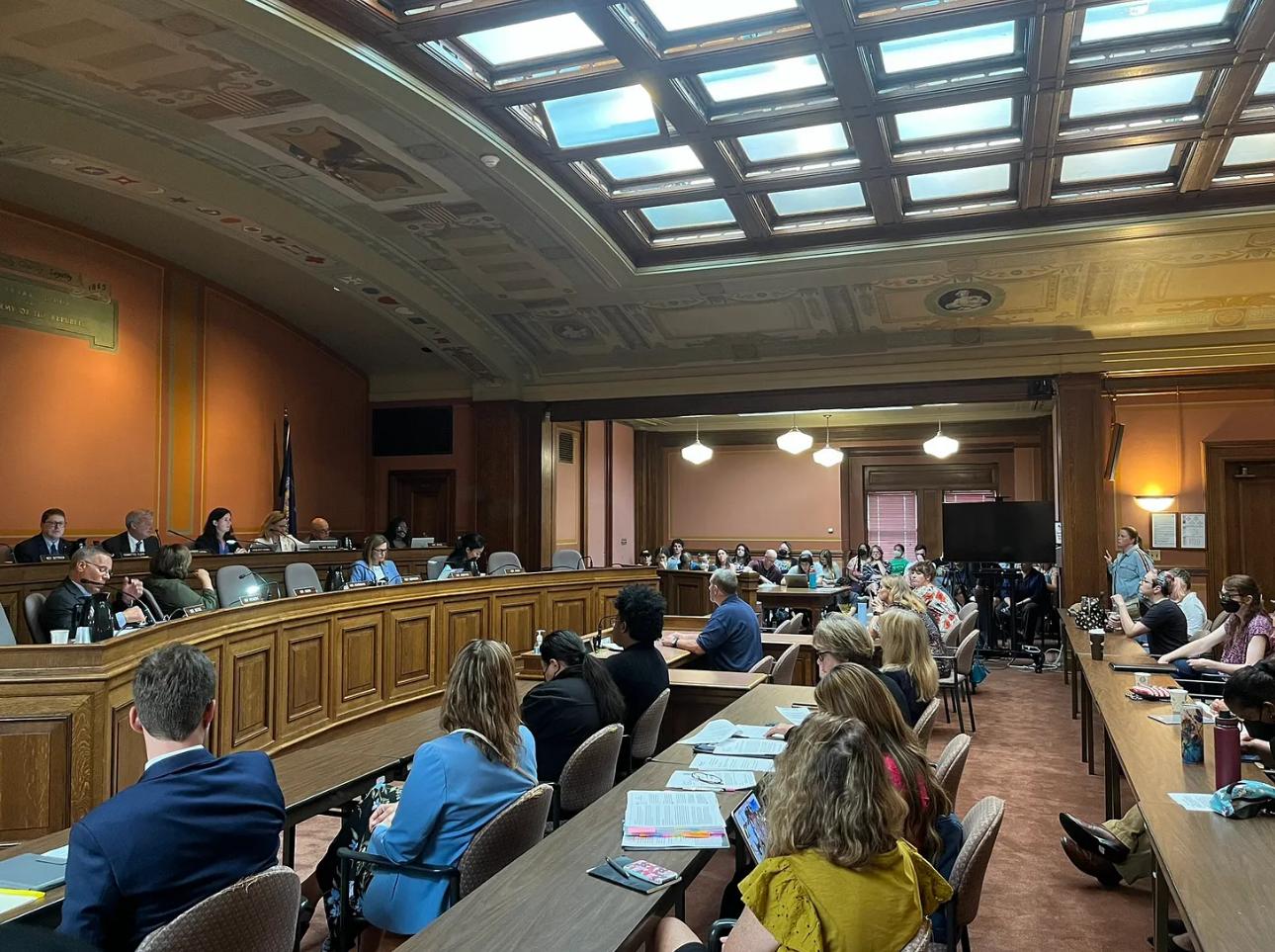
By Erin Reed | MADISON, WI. – On Wednesday, the state of Wisconsin considered three anti-trans bills. Two of the bills targeted transgender individuals in K-12 and college sports, while the third aimed to ban gender-affirming care for trans youth.
Opposition to these bills was extremely high, with one anti-trans activist noting that her side had “taken a knee” in light of the massive crowd rallying against these anti-trans proposals. Organizers showcased boxes containing 10,000 pages of testimony opposing the bans, and even Democratic Governor Evers made an appearance.
The bills under consideration were Assembly Bill 377, which proposes a ban on transgender girls participating in K-12 sports; Assembly Bill 378, aimed at banning transgender athletes in college sports; and Assembly Bill 465, which seeks to ban gender-affirming care for transgender youth.
Similar laws have been enacted in Republican-controlled legislatures across the United States this year—over 20 states now have some form of ban on gender-affirming care and sports participation for transgender youth. However, Wisconsin might present a more challenging terrain for the passage of such laws.
While Republicans hold a supermajority in the state Senate, they fall just shy of such a supermajority in the Wisconsin State Assembly. Moreover, the state boasts a Democratic governor, Governor Evers, who has pledged to veto any legislation targeting transgender individuals coming out of the legislature.
As the hearings commenced, it swiftly became apparent that it was shaping up to be a favorable day for those opposing the bills. Multiple overflow rooms reached capacity. In a notable moment, Republican Representative Nedweski believed she could corner a Democratic witness with the question, “What is a woman?” The witness sifted through the bill before looking up and noting that the definition “does not appear in the bill.”
Indeed, the bill itself only delineates sex as “what was assigned at birth on a birth certificate,” suggesting that not even Republican legislators could provide an answer to their own question in this particular bill.
Meanwhile, just outside in the overflow rooms that were filling to capacity, boxes were set on shelves for people to deposit their written testimony. Fair Wisconsin, an LGBTQ+ organization in the state, announced that they had collected nearly 10,000 pages of testimony in opposition to the bill.
In another overflow room, people standing in line were treated to Governor Evers, who showed up to stand in solidarity. He indicated that if any of these bills passed, he would “veto all of them.”
Following the education committee hearings on sports bans, the lengthiest hearing of the day commenced—a debate on a bill proposing a ban on gender-affirming care for trans youth. The sponsor began his testimony with misinformation about transgender care, erroneously citing a “Swedish study” to claim a higher suicide risk among individuals who transition (rather than those denied care). This assertion has been debunked by the author of the study herself, who has indicated that the data within the study does not support such a claim. Suicide rates are actually reduced by up to 73% for those who need and obtain gender affirming care.
Anticipating backlash from the medical community, the bill’s sponsor labeled local hospitals and national physician organizations as “wolves.” His apprehensions were indeed justified, as representatives from virtually all of Wisconsin’s major hospitals, medical societies, the American Pediatric Association, and the American Medical Association either attended the hearing or submitted testimony against the bill.
Every major American medical organization supports gender affirming care as scientifically backed and life-saving.
Perhaps the most potent moments of the hearing, though, were the actual individuals who testified. One such individual was Representative Ryan Clancy, who took a seat and shared experiences of his own transgender child. In his testimony, he sharply criticized the architects of the bill, asserting, “I would call the authors ghouls and empty husks of people, but I won’t… because the authors of this legislation are not in this building, they’re across the US.”
This remark alludes to the Alliance Defending Freedom, the anti-trans entity credited with drafting many of these bills nationwide. He continued, “they are not evil, the ones whose names are on this legislation, they are at best, plagiarists.”
See his testimony here:
While they tried to switch between those supporting the bill and opposing the bill at first, those attempts ran out in the first hour of the hearing. The remaining seven hours of testimony on the care ban was almost entirely opposed to the legislation. Outside, those supporting transgender rights gathered, socialized, and organized for future fights.
The bills will be voted on in the committee and potentially advanced to the full assembly. They have a long path ahead of it to be passed into law, with significant roadblocks, including a governors veto that Republicans cannot override by themselves. Likewise, as activists showed on Wednesday, that the already steep hill to climb will be made tougher by the huge number of people who stand in opposition.
****************************************************************************

Erin Reed is a transgender woman (she/her pronouns) and researcher who tracks anti-LGBTQ+ legislation around the world and helps people become better advocates for their queer family, friends, colleagues, and community. Reed also is a social media consultant and public speaker.
Follow her on Twitter (Link)
Website here: https://www.erininthemorning.com/
******************************************************************************************
The preceding article was first published at Erin In The Morning and is republished with permission.
Wisconsin
Neo-Nazi group disrupts Wisconsin Pride: “Us or the pedophiles!”
The neo-Nazi “Blood Tribe” were seen carrying what appeared to be assault rifles and waving large black flags with the swastika symbol
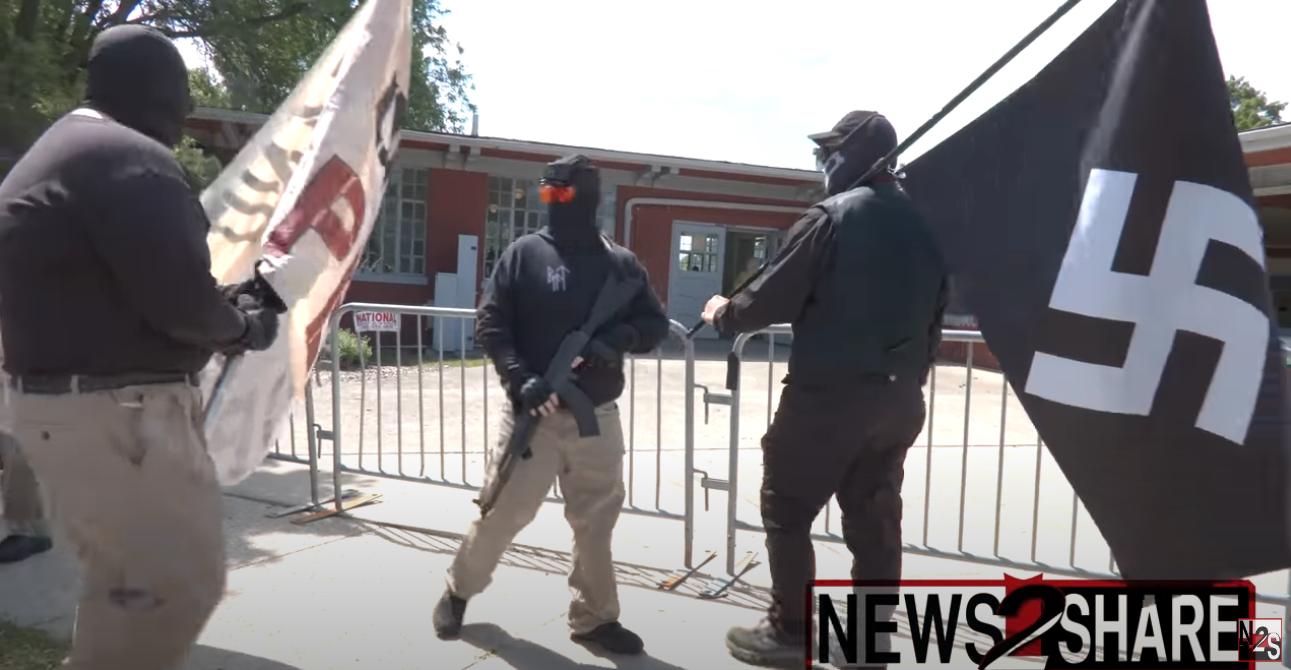
WATERTOWN, WI. – A neo-Nazi group that promotes hardline white supremacist views and openly directs hate speech at Jews, ‘non-whites’ and the LGBTQ+ community,” joined with the far-right extremist ‘Gays Against Groomers‘ group to protest a Pride in the Park event Saturday afternoon that also featured a Drag Queen Storytime and drag performances.
The neo-Nazi “Blood Tribe” were seen in multiple videos carrying what appeared to be assault rifles and waving large black flags with the swastika symbol while shouting “Us or the pedophiles!” at the crowd, which included children. They also yelled: “There will be blood, blood blood!”
In a social media post, ‘Gays Against Groomers’ wrote: “We’re out here with @GAG_Wisconsin at the Watertown, WI “Pride in the Park” event. Lots of protesters showed up! The all ages drag show is about to start. We will not waver. We will let them know loud and clear that NONE OF THIS is for children!”
We’re out here with @GAG_Wisconsin at the Watertown, WI “Pride in the Park” event. Lots of protesters showed up! The all ages drag show is about to start. We will not waver. We will let them know loud and clear that NONE OF THIS is for children!#GaysAgainstGroomers pic.twitter.com/pADfBMmMr7
— Gays Against Groomers (@againstgrmrs) July 29, 2023
Wisconsin LGBTQ+ media outlet ‘Our Lives’ reported the neo-Nazi group protested at the entrance of Watertown Pride, the town’s second annual pride event. Our Lives also noted [that] while disappointing and enraging, this protest is not wholly unexpected, as the Watertown city council meeting regarding the 2022 event was an hour and a half long meeting dominated by the comments of people who espouse anti LGBTQ rhetoric and believe the far right’s narrative about grooming behavior, especially when it comes to drag performances.
The news outlet also pointed out that no anti-drag laws have been passed yet in Wisconsin.

(Photo by Wendy Pliszka, Unity Project of Watertown)
Organizers of the Pride in the Park, which is put on by Unity Project of Watertown, spoke with WKOW 27 ABC News:
Robin Kangas, a spokesperson for the Unity Project of Watertown issued a statement Monday regarding the events that unfolded on Saturday.
“I would like to address what we have all been talking about. As the board we have come together and want to let everyone know this is our official statement:
“Yes, we had a Neo-Nazi group show up to protest our event. But you know who else showed up? The police department working hard at keeping us safe and the event peaceful. A group of religious leaders including rabbis, pastors, and priests affirming the individuals and community at the event. Allies and members of the LGBTQ community who spent the rest of the day laughing, sharing joy, making friendships, and spreading love. The Neo-Nazi group tried to derail us, but they failed. At Watertown’s Pride in the Park, love won.”
Related:
Armed Neo-Nazi group “Blood Tribe” protests “Pride in the Park” in Watertown, Wisconsin:
Wisconsin
Dolly Parton-Miley Cyrus duet about rainbows banned by school
The School District of Waukesha says the decision is supported by its Superintendent Jim Sebert & the Board of Education was not involved

WAUKESHA, Wis. – A decision by the School District of Waukesha banning Miley Cyrus’ song “Rainbowland” sung in a duet with Country superstar Dolly Parton from the Heyer Elementary School’s upcoming first-grade music concert because its too controversial has angered some parents and others labeling the decision an anti-LGBTQ move.
At issue are the lyrics: “Living in a Rainbowland where you and I go hand in hand. Oh, I’d be lying if I said this was fine. All the hurt and the hate going on here We are rainbows, me and you. Every color, every hue. Let’s shine on through. Together, we can start living in a Rainbowland,” as well as, “Wouldn’t it be nice to live in paradise… where we’re free to be exactly who we are.”
WTMJ 4, Milwaukee’s NBC News affiliate reported that a classroom teacher suggested the song to the music teacher. According to the school district, the music teacher checked with the principal to determine if the song would be acceptable to use in a first-grade music concert. The principal then checked with a central office administrator. The two reviewed the song alongside the district’s “Board Policy 2240 – Controversial Issues in the Classroom.” In accordance with the policy, they determined the song “could be deemed controversial.”
Instead, the song “Rainbow Connection” by Kermit the Frog was selected.
The School District of Waukesha says the decision is supported by its Superintendent Jim Sebert and at no time was the Board of Education involved.
FOX6 News Milwaukee interviewed a parent and others about the decision:
Wisconsin
Wisconsin Republicans block conversion therapy ban
Republican legislators say they object on procedural grounds
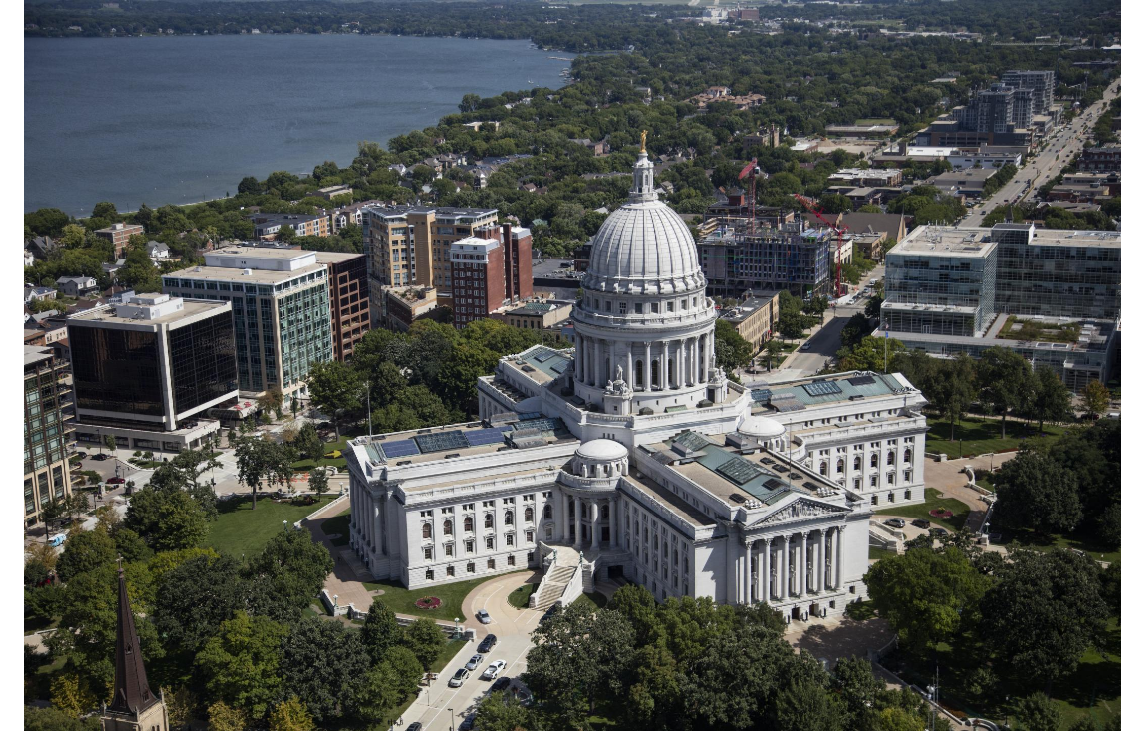
MADISON – An effort to outlaw conversion therapy in Wisconsin was blocked for the second time on Thursday by a group of four Republican members of a state legislative committee.
In 2020, Democratic Gov. Tony Evers banned the dangerous and scientifically discredited practice via occupational licensing requirements for therapists, social workers and counselors.
The Republican controlled legislature responded by temporarily blocking the ban, doing so again on Thursday with all six GOP members voting against their Democratic colleagues.
Twenty states along with the District of Columbia have banned conversion therapy for minors, as it is inconsistent with clinical practice guidelines governing evidence based care, ineffective at changing a person’s sexual orientation or gender identity, and tends to cause long term psychological harm.
The practice is often considered fraudulent and has been described as torture.
“It’s disappointing that the very first move the GOP is going to make this legislative session is to green-light abusive practices against children,” State Sen. Kelda Roys said.
Republican Wisconsin legislators contend their objection is rooted in the fact that the examining board in the Department of Safety and Public Standards does not have the authority to enforce the conversion therapy ban.
Wisconsin
Wisconsin school board labels Pride flags “political” & bans them
The policy specifies faculty/staff also may not say in professional school business related emails what their preferred pronouns are

WALES, Wi. – The Kettle Moraine School District Board voted to uphold a policy that schools Superintendent Stephen Plum had interpreted as banning displays of political or religious messages, including LGBTQ+ Pride flags, and Black Lives Matter and We Back the Badge signs.
The policy also specifies that faculty and school staff also may not say in professional school business related emails what their preferred pronouns are.
After impassioned debate on Tuesday during the board meeting’s public remarks segment, board members voted unanimously to keep the policy in effect.
The Associated Press reported:
Most of those who spoke at Tuesday’s packed board meeting opposed the policy. The public comment period was capped at an hour, despite a call from the crowd to extend it.
“If you have a policy that says ‘nothing political,’ does that mean you can’t have a sign up that says, ‘Support our Troops,’ or ‘Believe Women’ or ‘Save the Planet?’ By some people’s definitions, all of those things are political,” said Christine Donahoe, an attorney with the American Civil Liberties Union of Wisconsin.
Donahoe said she’s looking closely at the policy and a similar one approved last fall by the school district in nearby Waukesha.
“It really looks like targeted attacks at specific viewpoints, like LGBT communities, or welcome and safe spaces to students of color,” said Donahoe.
In a comment posted to the school district’s Facebook page, an Out University of Wisconsin Stevens-Point graduate, Kris Williams noted:
“How sad that your school district chooses to not support such a huge population of your youth, in your community, in your schools. This is shameful. I hope families of LGBTQ young people are able to find other schools in the area that will support their children fully. Showing LGBTQ support is not about politics or showing a political view. It is about being inclusive of all of humanity.”
More than 13,000 people have signed an online petition opposing the Kettle Moraine policy that was launched by two local high school students, Bethany Provan and Brit Farrar.
“Having a rainbow flag in your room isn’t pushing your beliefs on someone,” Provan told WITI-TV. “It’s just saying, ‘Hey, you’re welcome here, and we support you.’”
The Trevor Project sent a letter opposing the board’s actions prior to Tuesday’s vote when the policy was first discussed and implemented a month ago:
-

 a&e features5 days ago
a&e features5 days agoMusical Mondays, a mainstay in WeHo nightlife, celebrates 16 years
-

 National3 days ago
National3 days agoDiscredited former cop played ‘key role’ in deportation of gay make-up artist
-

 Arts & Entertainment2 days ago
Arts & Entertainment2 days agoA Night of legacy, love, and liberation: Inside the 2025 April Fool’s Ball
-

 Arts & Entertainment4 days ago
Arts & Entertainment4 days ago‘Bring it to Brunch’ returns to West Hollywood
-

 Myanmar4 days ago
Myanmar4 days agoLGBTQ+ advocacy group joins Myanmar earthquake relief effort
-

 a&e features4 days ago
a&e features4 days agoPeppermint thrives in the spotlight
-

 California3 days ago
California3 days agoSouth Park provides green space to a predominantly Latino community
-

 Arts & Entertainment2 days ago
Arts & Entertainment2 days agoSouth Coast Repertory Theatre hosting world premiere production
-

 Movies2 days ago
Movies2 days agoHeartfelt ‘Wedding Banquet’ remake a romcom worth seeing
-

 Brazil1 day ago
Brazil1 day agoUS lists transgender Brazilian congresswoman’s gender as ‘male’ on visa




